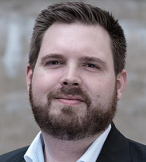La lectura de Rousseau da para mucho. Puede contribuir con la fundación de nuevas democracias liberales o a fortalecer los rasgos participativos y directos de la democracia contemporánea, pero puede servir también de nutriente ideológico de nuevos absolutismos de la mayoría. Tal vez lo más recomendable es no leer El Contrato Social como libro único, sino como uno de los textos importantes de la Ilustración.
Juan Jacobo Rousseau fue un escritor, filósofo y polímata suizo. Polímata significa hombre de muchos saberes. Nace en Ginebra, Suiza el 28 de junio de 1712 en un hogar calvinista. Muy temprano queda huérfano de su madre y continúa a cargo de una tía y de su padre, un modesto relojero.
Una de las máximas figuras de la Ilustración y del siglo XVIII. Se le considera uno de los principales críticos del absolutismo y doctrinario de la Revolución Francesa. Se le llama también Padre de la Pedagogía moderna. Fue también botánico y periodista.
De personalidad contradictoria, complicada; así como añora aspectos de la Edad Media promueve una democracia directa como la ateniense y favorece la destrucción de la monarquía absoluta por medio de la revolución. Madame de Warens, una dama ilustrada, le ayuda a educarse y es como una madre y una amante. Le influye para que se convierta al catolicismo.
De formación autodidacta e inestable en su camino espiritual. De herencia calvinista se hace católico y luego vuelve al calvinismo. También se señala como deísta y masón. Se sabe que en su época establece contacto con Voltaire y Diderot.
Convive durante muchos años con Thérèse Levasseur, una lavandera y servidora doméstica con quien procrea 5 hijos antes de casarse por la vía civil en 1768. Luego entrega sus hijos a un sitio para huérfanos.
- Hits: 12832
 Sunday, May 26th, 2pm: I am on my way to vote in the European elections.
Sunday, May 26th, 2pm: I am on my way to vote in the European elections. decide what will happen with and in the EU for the next five years.
decide what will happen with and in the EU for the next five years.
 religiosa para servir según sus capacidades. Hay consagradas que trabajan como presidentas de universidades y hospitales católicos; muchas imparten enseñanza a diferentes niveles; las hay enfermeras en congregaciones hospitalarias. El fuerte de algunas es la cocina o la costura u otras manualidades. En las comunidades todas comen lo mismo y visten igual; no hay diferencias. Muy pocas prestan servicios domésticos en residencias episcopales.
religiosa para servir según sus capacidades. Hay consagradas que trabajan como presidentas de universidades y hospitales católicos; muchas imparten enseñanza a diferentes niveles; las hay enfermeras en congregaciones hospitalarias. El fuerte de algunas es la cocina o la costura u otras manualidades. En las comunidades todas comen lo mismo y visten igual; no hay diferencias. Muy pocas prestan servicios domésticos en residencias episcopales.